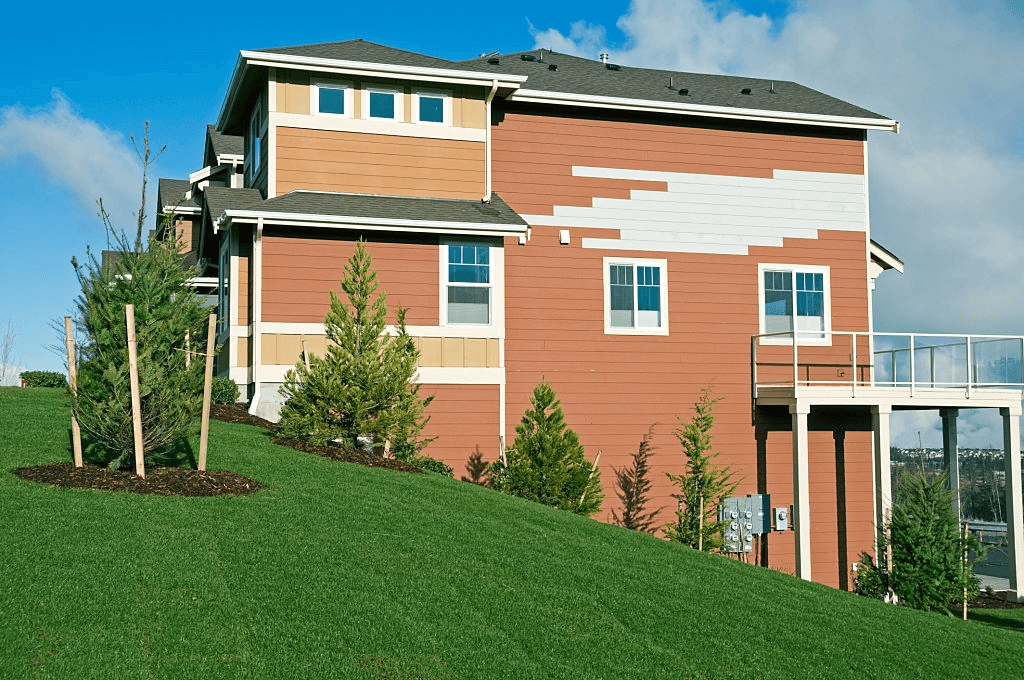Alternatives to Vinyl Siding
Having fallen out of fashion, those who own homes are now turning their attention from vinyl siding to better options of home siding that are modern and of class. The choice of siding is beyond finances and lifestyle, but the focus has now shifted to geographical locations as well.

So, what to consider when choosing the type of siding for your home? Here is the list:
- Water-resistance: you should ensure that the nature of the siding you want can resist water for it to stay longer.
- Ease of installation: you should pick on siding that you can do alone. It should not expose you to dangers, and its tools are readily available.
- Energy efficiency: ensure that the type of siding you choose will be cost-effective in the long run, and it will not expose you to too many unnecessary bills incurred in the house, especially during winter.
- Beauty: should be one that you’ll always admire having in many years to come without regretting having it.
- Versatility: you should make the right choice when it comes to getting the right siding. Ensure you choose one that will perfectly match your home in any dimension to reduce the extra expenses of modification.
- Durability: make sure it is the siding that will bear the weather conditions of your place without many tears and wear after a short period.
Popular Siding Options Today
It is crucial to study your home and understand the consequences various sidings can bring. For example, you should be in a position to know if not consult an expert to advise that your home receives a lot of wind, receives heavy rainfall, or has a lot of insects.
Some of the pros and cons of using various sidings in Toronto are cited below:
- Wood siding: as much as it is easy to deal with, generally, in comparison to vinyl siding, it incurs a lot of costs, for example; during purchase, another way in which it is expensive is through maintenance, after some years you will be forced to spray them to make them look neat and pretty. It also wheedles cash from you especially homes in termite and insects prone areas where you are forced to apply pesticides and insecticides for control.
- Fiber cement: though stable and require minimal maintenance, is human-made and, therefore, can only work in selected climatic conditions, making it not to be versatile. It is easy to find because the materials used to make it are readily available, and you can also find them in various forms of texture. It has so many benefits like, cannot catch fire, not being eaten by insects and termites, cannot get spoilt by the wind as well as rot. It also has disadvantages such as; putting it in place is hectic; therefore, you require sophisticated tools and experts that are much more costly.
- Stucco: it can last for your entire life if well taken care of. It also ogres well with organic colours giving an ideal mixture. It is excellent for the fact that it does not catch fire at any time. It requires you to paint it once, and that is all for the entire time. It is important to note that it has some cons as well, including; requiring skilled persons to be able to fix them on the wall as well as much money and time during the making.
- Engineered wood siding is made up of wood components and exists in many suitable forms. It gives you benefits like; it cannot be affected by termites and is also not prone to dust when cutting. It also has the other side, which is an encounter with moisture that can affect it after use.
- Synthetic stone is made from a mixture of concrete and is commonly used at the foot or lower parts of walls and chimneys. It takes varieties of rocks and shapes, some of which are granite as well as limestone. It is light and less expensive compared to ordinary stone. The disadvantage it has is that it is more costly than vinyl siding.
In conclusion, if you are going for another more advanced siding than vinyl, it is essential to understand their pros and cons, and most important is that before making a decision, it is wise to seek an advisory opinion from an expert.